The Psychology of Becoming a Profitable Forex Trader
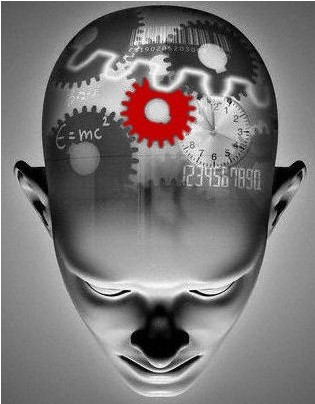 Today, we touch again upon that never-ending debate, particularly amongst newer traders, about the role of psychology in becoming a profitable and successful trader. How much does it play a role in trading? Some argue it plays no role and that all that needs to be followed are one’s trading signals. Others swear that it’s role is 80-90%. How these percentages are calculated or how accurate they are is irrelevant. The truth is, psychology can make or break your trading career.
Today, we touch again upon that never-ending debate, particularly amongst newer traders, about the role of psychology in becoming a profitable and successful trader. How much does it play a role in trading? Some argue it plays no role and that all that needs to be followed are one’s trading signals. Others swear that it’s role is 80-90%. How these percentages are calculated or how accurate they are is irrelevant. The truth is, psychology can make or break your trading career.
We are all different. Some traders are incapable of changing their behavior and no matter what system they have decided to follow, they just cannot do it. Certain personality traits are in the driving seat and cause them to break all their rules. For instance, a personality type marked by greed combined with emotional traits such as impulsiveness will create the conditions leading to the eventual demise of even the most innately gifted trader. An over-confident personality susceptible to being governed by emotional forces such as impatience is a similar destructive psychological amalgamation; anything that moves is seen as a potential trade. Then there are the others – incidentally of whom there are very very few – who seem unaffected by their emotions when they trade.
The 4 stages of trader psychology
Most of us go through four different stages in our learning curve:
Stage 1 – We completely ignore or are unaware of the importance of psychology in our trading. Instead, we concentrate completely on the technical analysis side.
Stage 2 – We could call this stage realization. We begin to realize that there is another element we have been missing. We become adept at reading the charts and yet we are not consistently able to make or keep money. So we start reading books and listening to others and the message is: our personalities are getting in the way.
Stage 3 – The role of psychology becomes unimportant again but not because we are ignoring it or are unaware of it as in Stage 1. We just do not have to worry about it any more. Inner barriers are overcome and we have managed to change ourselves and our behavior to the extent that we can execute our forex trading plan and follow our rules automatically. We no longer have to consciously think about the clutch or accelerator or the brakes, we just drive the car.
It is important to understand that Stage 3 is attainable and it should be our goal. Sadly, most traders get stuck at stage 2. They think about the role of psychology and their personalities continuously and to such an extent that they go round and round in circles. Their growth and development as a trader comes to a halt as they delve deeper and deeper into the inner workings of their minds. Stage 2 can be taken slowly but to become a successful trader, it has to be left behind at some point.
Stage 4 – Complete mastery of the “Three M’s” of trading; Mind, Money and Method. This is a different dimension altogether and it may take years to achieve.
Details of the 4 stages of trader psychology
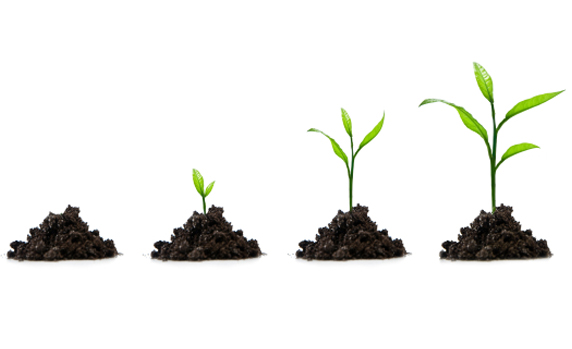 STAGE 1 – Unawareness of the significance of psychology in trading
STAGE 1 – Unawareness of the significance of psychology in trading
There is little to be said about this stage – it is painfully obvious only when we have entered stage 2.
STAGE 2 – Realization
After the trader becomes aware that what he or she thought was easy is certainly not, they begin to search for answers. Articles and books are read, information is sought on the web and forums are visited. The realization grows that his or her inner mind greatly influences his or her trading performance and that it is not always under conscious control.
In our daily lives, we are often confronted with the knowledge that our emotions lead us to do and say things we should not. We become angry when someone cuts in front of us in a queue or we get stuck behind some ‘idiot’ who doesn’t seem to realise that the speed limit is 30km/h and not 20km/h. What prevents us from delivering a left jab to these annoying individuals? What prevents us from walking into a cafe and lifting a delicious-looking piece of cake from someone’s plate? Self-control, self-discipline and social mores dictate our behaviour.
But what would happen if these controls were lifted and our inhibitions released? Could we restrain ourselves? Would we act out our emotions? With moral or ethical constraints no longer in place, would we succumb to temptation?
The answer is probably yes. And this is exactly the nature of the trading environment. There are no external factors to prevent us from causing damage to our accounts. There is nobody leaning over our shoulders to say ‘stop!!!!’ In the absence of external constraints, we need much stronger self-discipline and self-control in order to continue following our forex trading plan and rules. Those rules have to be found, built on and structured entirely by us. And then they have to be implemented and reinforced by us alone. Is there any other profession that requires such dedication and so much work on ourselves to become successful? Is it any surprise that trading is so hard to master and that 95% of traders fail in the process?
So what is the solution? We have to realize that the market is an uncertain environment. And that what is more important than anything else is the right trading mindset. In fact our success as traders is directly correlated to our ability to create this mindset and practice strong self-discipline.
But there is another even more crucial fundamental difference between the potential consequences of displaying emotions in the real world and world of the markets. In our social environment we can utilize emotions such as anger, rage, or the evocation of sympathy or pity through a display of sadness to influence or manipulate those around us to give in and succumb to our needs and demands. The market however, does not work that way for it is an environment that is totally and utterly impervious to our emotional displays. When trading, the only entity whose behaviour will be molded by our emotions is us, for the merciless and immutable workings of the market dishes out losses and rewards solely on the basis of one factor: a rational determination to follow our rules.
STAGE 3 – Clarity and liberation
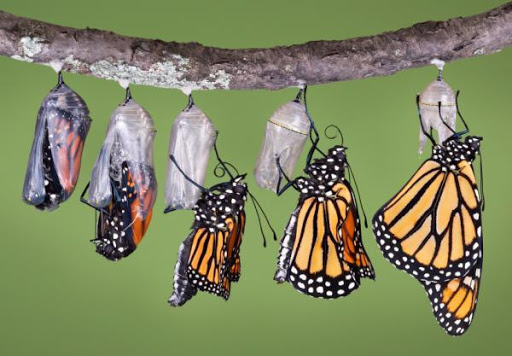 As the chrysalis becomes a butterfly, a trader is born. We are no longer slave to our emotions and we are in control of our actions. No longer do we jump in and out of trades, nor do we micro-manage them once they have been placed. We set our stop and take profit target and then we walk away. We allow the market to ‘do it’s own thing’ by employing a set and forget trading style. As in our daily lives, so much is outside our control and the only power we have lies in the way we react to the cards that are dealt us. Thus we are not over-elated when our take profit is hit, nor do we fall into deep despair when we incur a loss. In fact, there is a direct negative correlation between the intensity of our emotional reactions to either events and our success as a trader.
As the chrysalis becomes a butterfly, a trader is born. We are no longer slave to our emotions and we are in control of our actions. No longer do we jump in and out of trades, nor do we micro-manage them once they have been placed. We set our stop and take profit target and then we walk away. We allow the market to ‘do it’s own thing’ by employing a set and forget trading style. As in our daily lives, so much is outside our control and the only power we have lies in the way we react to the cards that are dealt us. Thus we are not over-elated when our take profit is hit, nor do we fall into deep despair when we incur a loss. In fact, there is a direct negative correlation between the intensity of our emotional reactions to either events and our success as a trader.
Suddenly we can see the emotions of the herd on our charts without being part of that herd any longer. Thus we do not react to those herd-emotions but instead are able to evaluate and use those emotions to our advantage.
This clarity is liberating. Clarity and liberation constitute this stage of a trader’s development, if we have developed the ability to see clearly and understand what is happening. We now have the freedom to choose how we react. We are master of our own trading versus being part of the herd.
What else can a trader expect from this stage of development? He or she becomes a detached observer of the market, never involved emotionally yet constantly evaluating the emotions of other traders, waiting patiently for the right set-up to appear and not compromising by entering the market on low-probability trades.
The transition from Stage 2 to Stage 3 does not happen overnight. Like all learning experiences it is a process and a gradual one which is made up of a series of small clicks, each being another piece of the puzzle falling into place. There is a realization of how the market’s logic is not the same as the conventional Aristotle kind of logic, which was incorporated in the late 19th century into modern formal logic. There dawns the understanding of how Smart Money acts versus how the herd behaves and of how a chart reflects emotions. The knowledge develops that the trader does not have to participate in any market event, that he or she is free to choose which battles are to be entered into. Each click comes as a result of yet another lesson taught by the market, which is the greatest teacher of all. Rarely does it miss an opportunity to punish the trader for making mistakes. If you are an avid student of the market, you will listen carefully and take notes, collecting knowledge and experience. Ore goes in and steel comes out. This process takes time but it is worth it.
When you arrive at this point in your trading career, you will discover that this metamorphosis has transformed you not only as a trader but as a person. You will find that in your daily life you have more self-control and self-discipline, are more patient and less impulsive.
This sounds almost too good to be true. And there is indeed a big ‘BUT’. For this transformation is not necessarily a constant state. There will be times when those bad habits return and you suddenly realize that you have slipped back a few rungs on the ladder. You become over-confident, trigger-happy and complacent. You enter into less optimal trades and disregard your rules. The sooner you notice this, the sooner you can get yourself back on track. For the discarding of old destructive trading habits is not a single event but a process. It seems to be a human failing that when we achieve success, we tend to stop doing what led to that success in the first place. However, as frustrating as this may seem, when you overcome these set-backs and return to the right path, your skill of dealing with this phenomenon becomes better. Relapses are less frequent, you recognize them sooner and eliminate them faster. They will finally cease altogether when your reactions to the market become second nature.
STAGE 4 – The last stage of a trader’s development
 The final stage of a trader’s development is easy to understand even if it is not easy to implement. If the trader is ready for the transition, then it will not be difficult.
The final stage of a trader’s development is easy to understand even if it is not easy to implement. If the trader is ready for the transition, then it will not be difficult.
The early stages of trading are full of emotional decisions which lead to erroneous entries and exits. These are the emotions that drive the herd. But as you slowly recognize, take control over and lessen their effect on your trading, they do not disappear entirely. The trader at this level has learned to separate them from his or her trading behavior and observe them in an objective and detached manner. Instead of becoming their slave, the trader can use them to his or her advantage. If you can feel the panic deep within yourself that ensues when there is a huge sell-off, those are exactly the emotions the herd is feeling too. Similarly, if you can feel that irresistible temptation to buy that enormous upward parabolic spike, you are slotting into how the herd feels too. How often have you sat and watched it go up and up and up until it becomes too unbearable to resist and you buy, only to find that the last traders have hit ‘buy at market’ already?
USE your own emotional reactions as a mirror to gauge the emotions of the herd. Once you recognize them then you will also know how the herd is going to act. Together with your improved and strict self-control, such an approach will put you on the right side of the market. And the right side is not usually the side of the herd.
However, I administer two warnings:
First, do not try to integrate this element of trading into your arsenal too soon. It is better to remain at Stage 3 long enough to become confident and consistent before you attempt to move onto Stage 4, which demands the implementation of a great deal of experience and self-control.
Secondly, as you progress on your journey, you may discover that you stop experiencing those herd-like emotions altogether and that your impulses are completely in synchronization with your own analysis and actions. When this happens, your attempt to read YOUR impulses as a window to the HERD’S impulses may backfire as you begin trading as a contrarian trader to yourself rather than the herd. Essentially then you become part of the herd again!
Look at it like this... There is a space between external influences and your reaction. YOU create this space by pausing before you react and your freedom of choice lies within that space. And YOU CAN CHOOSE the impulsive emotional reaction – or not. You can choose to ask yourself what reaction would be the best, what emotions are driving the price move and who is likely to be behind it, either smart money or the herd and you can choose to position yourself on the right side and make decisions which support that choice. You can choose to listen to your own emotions during that pause, evaluate the first impulsive response you felt compelled to make and analyze whether it was a valid decision or purely one that the herd would make.
To learn an effective Forex trading strategy that will work to complement and develop proper trader psychology, checkout my forex trading course for more information.



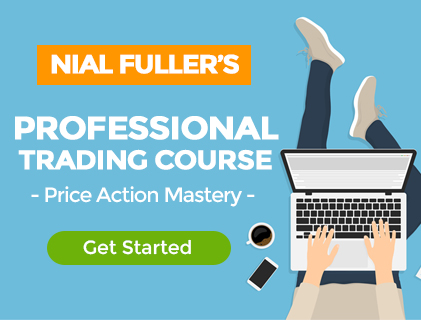
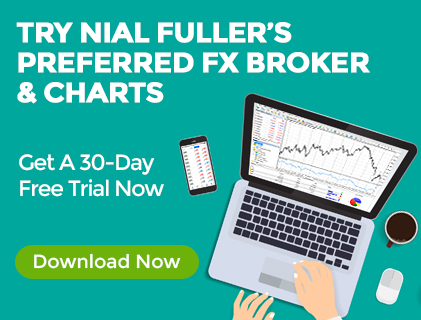

The biggest eye opener here is in stage 1. The fact that most traders are ‘UN-AWARE’ and don’t UNDERSTAND how trading psychology affects their long-term results.
I really don’t think its ignorance as such, if one is true to themselves, its simply lack of awareness.
I have spent many years perfecting the art of technical analysis, not being consciously aware of how
the third M affects trading.
Cheers Mate.
All this is very similar to spiritual progress. It is even said that the market is God because he can do what he wants.
The foundations of spiritual science are permanent, unchangeable over time. Always given for free. They are not easy to use, because everything around goes the other way.
I noticed two differences.
1. The basics, simplicity, foundations, principles, discipline, self-control are the most important on this blog. And all this is given for free and with striking accuracy.
2. Getting to know the market and working with it in harmony. This is the goal, the rest is by the way.
This is a rare and taught goal. It can not be said that it is not indicated, but in practice the goal that is shown to us is the so-called lifestyle of a trader. To live in Tenerife and swing on a white yacht. Have a very special car etc.
And at the same time, most of the trainings are more and more refined. More and more recent versions of the courses that you still need to invest in.
Success is spiritual.
Great article ! a must read teaching for serious traders.
Trader in stage #4 looks like like a tai-chi master who can feel the market emotion from the chart patterns and finally uniting his soul and mind in it. However, we shall open the awareness door in stage #2 first before going mastering.
Thank you so much coach.
thanx Nial;
great discourses as usual. much appreciated.
Hello Mr. Fuller
Well I am completely in stage two. I personally think this article is one of your best, it touches many aspects of one mental and emotional states. I particularly like your thought that there is a “space” between external and reaction to it. Really a good article. My previous comment had me in stage one and two but mostly in stage one and that was August of 2010.
Hi Nial, I am just a few weeks into learning about forex trading and thankfully have come acroos your site.This was an excellent article and when I do your course in the near future I am sure many more gems will leap out at me. Many thanks.
Excellent writing Nial, very insightful! Thank you.
“How often have you sat and watched it go up and up and up until it becomes too unbearable to resist and you buy, only to find that the last traders have hit ‘buy at market’ already?”
That was me just yesterday. :)
Great stuff. Thank you.
Hi Nial,
I simply like to read your article!
Thank you very much.
Discipline equals freedom. You can apply it to almost anything. I’ve been learning to trade consistantly since Dec09 and enjoying the process. Thanks for your thoughts and words it couldn’t have come at a better time.
The information in this article is priceless. The Market is an environment that doesn’t know about or care about our emotions. It dishes out rewards and losses based on one factor: a rational determination to follow our rules. This article spoke right to me. Thanks Nial
Nice one Nial! great stuff.. this mind buisness, so important, you definatly need to keep bombarding us with this subject… I do feel that it’s one of the key factors for success in this buisness…
Brilliant piece of writing, Niall,sums it all up perfectly.
In the words of ACDC, its a long way to the top.
Great article, for those of us whose non-trading life is dominated by logic, this sentence of yours says it all.
“There is a realization of how the market’s logic is not the same as the conventional Aristotle kind of logic, which was incorporated in the late 19th century into modern formal logic.”
Thanks
bridge
That was a great article. I’ve printed it out for regular reference. Many Thanks.
Nial you continue to elevate yourself and your insights above the Forex teaching herd [imho]. Exemplary analogies clarify your message and remain with this pupil long after a first reading. Sincere thanks again.
Your writings have helped me win.
Thought provoking article, have just opened a demo account and already feel invincible…Newbie over confidence. Will now try to “pull my head in”…cheers.
Hi Neil:
I’m not yet a member of your community, but I must say that this is finest peace of writing I have come across in my 19 months of forex studies. You just describe accurately my actual trajectory.
I see my self just at the very beginning of stage 3, and I did not even realize it, until now, more over, you just turned on the light on me and now I can see were I need to get to, what path I need to follow and what to expect in that journey.
This is really cool.
Thank you nial that was great article!
Good Article! This is courageous, thanks Nail, I am gradually doing well in trading by your guideline. Within a short time in God grace, I will join your members.
There is a stage 2,3, and 4? Thanks Mr. Fuller for re-affirming that psychology does and will always play a role.
I have just set foot into stage 2; one foot anyway the other is still in stage one, boy is it ever.
You are spot on. At present I am one of the herd I wait and wait and become impatient jump in obviously with the rest of the herd and lo and behold…… you know the rest. Great read Thanks keep them coming. Stage 3 here I come.
it has taken me a long time to accept the steps to trading psychology at first i thought a good system would solve all.
very insightfull article thank you heres to moving to through them
cheers trevor
Excellent article Nial, you touched the hidden and most important aspect of trading which usually goes undetected even by most experienced traders and yet is a critical factor in consistent success. Thanks!
It sounds like my own example – first I was making good money when I started trading a system, then I stopped following the system rules and therefore fallen into losses. Now I am awaken and I am back where I am following my system but as cautious as never before… Now 5 pips is a good profit for me…
Anyway great lesson, thank you!
Thanks Nial.
Fantastic article! Great insight into the minds of all traders. This definitely proves that we are all emotional being and we all act differently, whether on impulse or otherwise. It all comes to to what you stated “self disciple.” Nothing more, nothing less.
Thank you Nial for the great video. Simplicity in the purest form is the way to trade; no lagging indicators, no back testing, just forward action dictated by pin bars! Please continue with the great video and great articles. God-Bless Nial!
The more I learn the more I realise how little I know.
“The only true wisdom is in knowing you know nothing.”
Socrates (469 – 399 BC)
yes,,, it is, we must learn this,,, thanks for the help
Awesome article, definetly sums up not only feelings I have been dealing with for a long time but for sure other traders as well. Great insight! PS Pretty sure I am on stage 2…need to get to stage 3!
Good article Nial. We all experience the pain in trading when we lose but as long as we have a good methodology we know that works we can overcome it.Even with 3 or 4 losers in a row you can still be profitable in the long run.